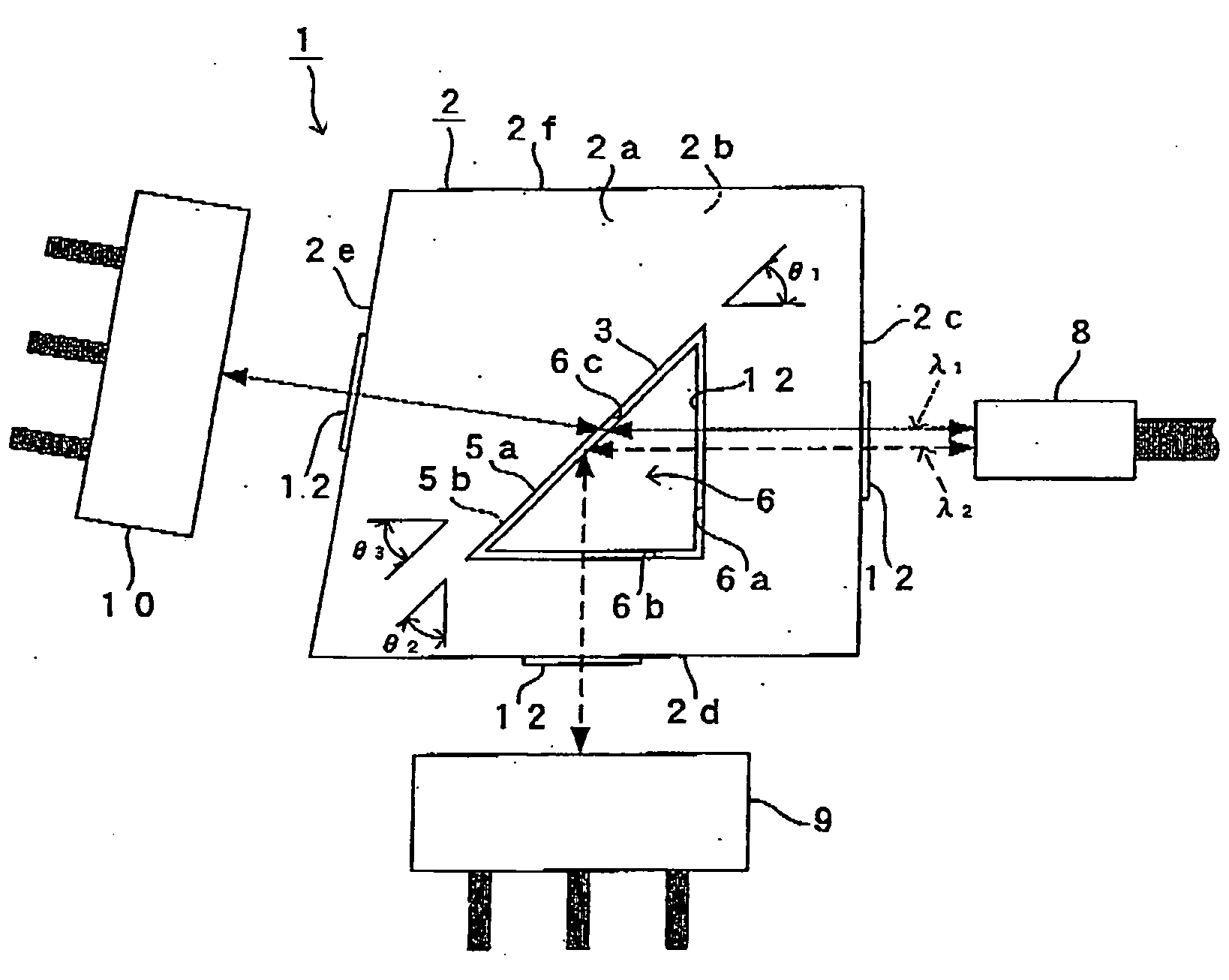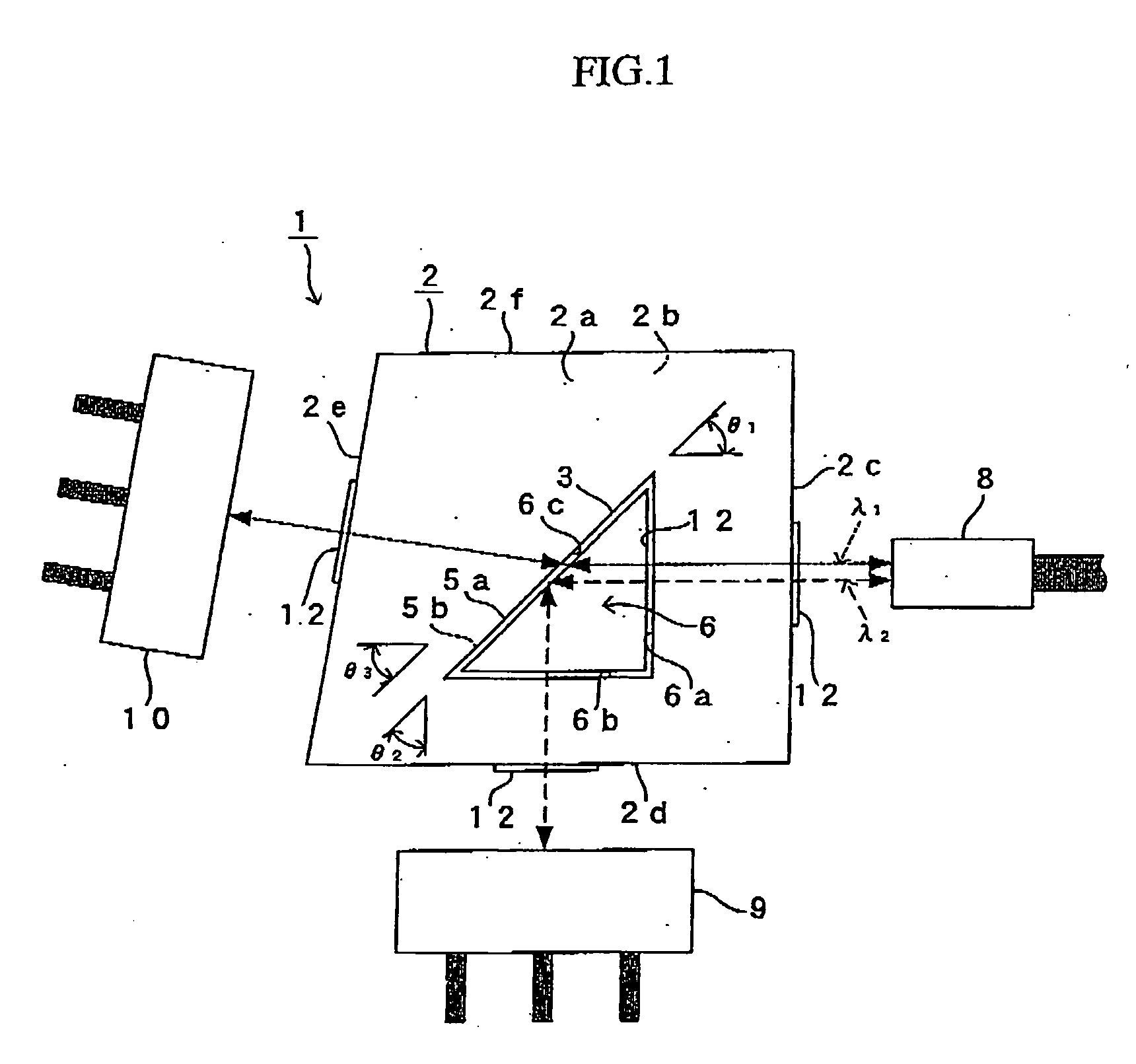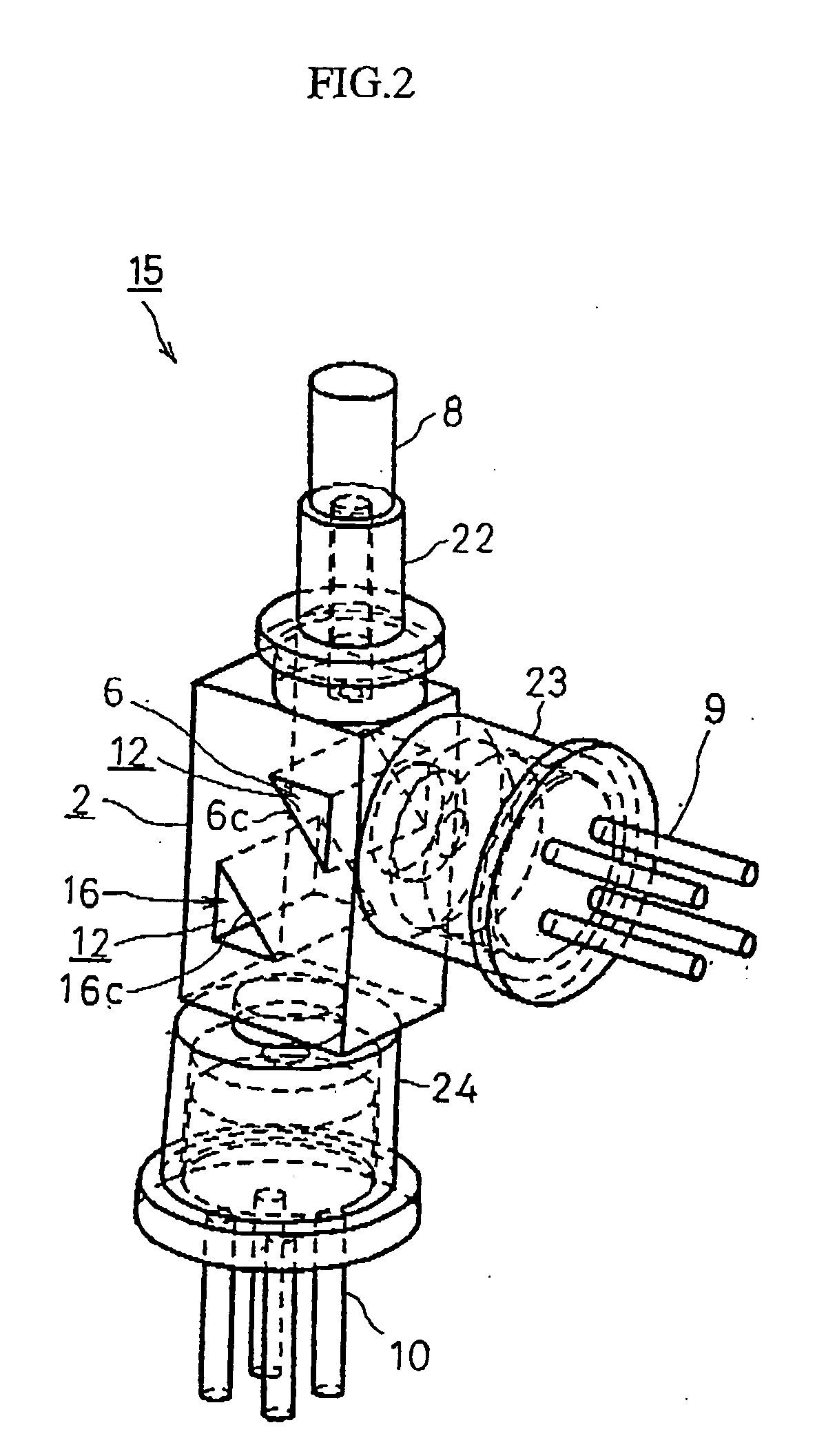Optical element
- Summary
- Abstract
- Description
- Claims
- Application Information
AI Technical Summary
Benefits of technology
Problems solved by technology
Method used
Image
Examples
first embodiment
[0057] A first embodiment of an optical element according to the present invention will be described hereinafter by referring to FIG. 1.
[0058]FIG. 1 shows an illustration for describing an optical element 1 of the embodiment. As shown in FIG. 1, the optical element 1 of the embodiment comprises a trapezoid optical block 2 with a prescribed thickness in a direction perpendicular to the paper face of FIG. 1. The optical block 2 is formed by the same resin material, and the optical material 2 can be integrally molded by ejection molding.
[0059] Examples of the resin material for forming the optical block 2 may be polyether imide (PEI), cycloolefin polymer, polycarbonate, etc.
[0060] Hereinafter, a face (front face) of the optical block 2 on the front side with respect to the paper face of FIG. 1 is referred to as a first face 2a, the back face thereof as a second face 2b, the right-side face in FIG. 1 as a third face 2c, the lower-side face as a fourth face 2d, the left-side face as a...
second embodiment
[0096] Next, a second embodiment of the optical element according to the present invention will be described by referring to FIG. 2-FIG. 7 especially focusing on differences between that of the first embodiment. Components with the same basic structures as those of the first embodiment or similar to those will be described by applying the same reference numerals.
[0097]FIG. 2 is a perspective view for showing an optical element 15 of this embodiment. FIG. 3 is a front elevational view viewing the optical element 15 from the same direction as that of FIG. 1. FIG. 4 is a right-side view of FIG. 3, FIG. 5 is a left-side view of FIG. 3, and FIG. 6 is a lower-side view of FIG. 3. FIG. 7 is a cross section taken along the line A-A of FIG. 4.
[0098] As shown in FIG. 2, FIG. 3, and FIG. 7, the optical element 15 of the embodiment comprises not only a cavity part 6 with the same multilayer film 12 as that of the first embodiment in an optical block 2, but also a second cavity part 16 of the ...
example 1
[0120] As shown in FIG. 8, a multilayer film 12 of Example 1 had a total of forty-five layers that are formed by alternately and repeatedly laminating TiO2 thin films and Al2O3 thin films by ALD on an optical block 2 made of polyether imide.
[0121] The film thickness and the optical film thickness of the thin films in each layer were set as in FIG. 8. In FIG. 8, the film thickness is a physical thickness of the thin film. In FIG. 8, the optical film thickness is obtained in a following manner: the film thickness that is converted with the wavelength of light in vacuum as a reference (i.e. physical thickness of the thin film) is multiplied by the refractive index of the film material with a reference wavelength.
[0122] The TiO2 thin film was formed by chemical reaction using TiCl4 (titanium tetrachloride) and H2O (water) as materials through introducing gases of both materials into a chamber alternately and intermittently. Meanwhile, the Al2O3 thin film was formed by chemical reactio...
PUM
 Login to View More
Login to View More Abstract
Description
Claims
Application Information
 Login to View More
Login to View More - R&D
- Intellectual Property
- Life Sciences
- Materials
- Tech Scout
- Unparalleled Data Quality
- Higher Quality Content
- 60% Fewer Hallucinations
Browse by: Latest US Patents, China's latest patents, Technical Efficacy Thesaurus, Application Domain, Technology Topic, Popular Technical Reports.
© 2025 PatSnap. All rights reserved.Legal|Privacy policy|Modern Slavery Act Transparency Statement|Sitemap|About US| Contact US: help@patsnap.com



